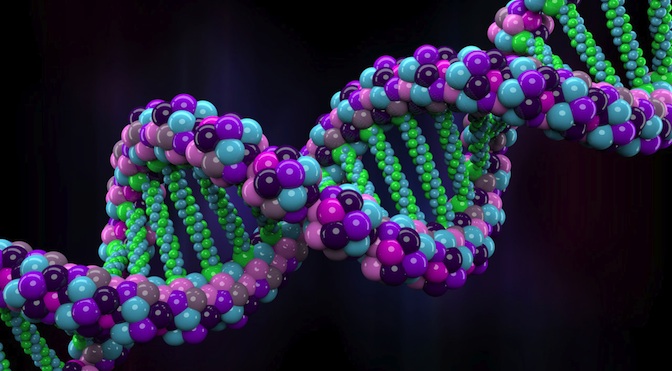Researchers have found strong evidence linking MVK gene mutations to DSAP. A mutation in the MVK gene could prevent or reduce the cells’ defense against harmful rays from the sun
In late 2012 a group of researchers performed exome sequencing in one unaffected and two affected members of a DSAP family. Exome sequencing allows scientists to study the coding portions of genes to look for underlying causes of diseases.
Upon analysis, researchers found that there was strong evidence that the mevalonate kinase gene (MVK) mutations link to DSAP, according to a study published online in Nature Genetics by a Chinese research team.
The MVK gene helps produce substances necessary for certain cellular functions, such as cell growth, cell maturation, formation of the cell’s structural framework and more. Researchers think that normal MVK could help protect epidermal cells from UVA-caused apoptosis (collapse of cells). In other words, a mutation in the MVK gene could prevent or reduce the cells’ defense against harmful rays from the sun.
Another form of DNA sequencing, Sanger sequencing, was used to examine other DSAP cases. Results were compared to a control group to ensure findings were exclusive to sufferers. Further deleterious (harmful) mutations were discovered.
Studies of subtypes of Porokeratosis other than DSAP did NOT find the same MVK mutations. This means that the gene alterations may be specific to DSAP.
A senior scientist of the project, Tao Jiang, said: “Our study provides new insights into the pathogenesis of DSAP, and the identified MVK mutations offer the best candidate targets for gene diagnosis and clinical treatment of the disease.
[grwebform url=”http://app.getresponse.com/view_webform.js?wid=4602701&u=VqSj” css=”on”/]


Wow! Thanks for the easy to understand article!! Good to know something is finally being do e.